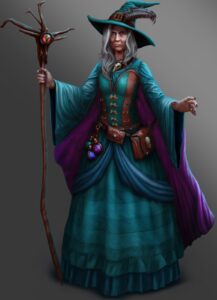Gay Hendricks in The Big Leap calls it ‘the upper limit problem.’ In her book You are a Badass, Jen Sincero talks about it as ‘limiting beliefs.’ Whatever you call it, we all have it – a sub-conscious cap on what we think we are capable of. In the voice-over industry this might translate to “oh I could never do character voices!” or “I’d never be able to produce an audiobook,” or even “I can’t make a living as a voice actor.” We may have never even given voice to these beliefs and yet they hold us back.
 We have such beliefs in every area of our life. In fact we create a circular wall of them that we tend to live in, and many will live behind this wall their whole life.
We have such beliefs in every area of our life. In fact we create a circular wall of them that we tend to live in, and many will live behind this wall their whole life.
I’m not athletically gifted. In elementary school you would not have picked me for your team. I managed to maintain a moderate level of fitness through regular exercise, but I’d never tried to lift any heavy weights because “I’m not strong; I’m not an athlete,” was a deeply ingrained belief of mine.
Like most people, I needed a little push to prove myself wrong. Mine came in the form of an enthusiastic trainer who started me on a powerlifting training program. I can’t tell you how many times I looked at her with an “are you sure?” or a “you’ve got to be kidding me” expression. She was patient but firm, and it was her belief that I could, that kept me going.
I really never thought I could ever lift anything over 100lbs, but all my training culminated in a powerlifting event in which I benched over 100lbs and deadlifted over 200 lbs. (Not bad for a middle-aged non-athlete).
After the event I sat in my car and thought “I just did something I didn’t think I could do – how many other things are out there that I don’t think I can do, but I actually can?”
2021 was my most successful yet as a voice artist because the confidence I found in the gym translated into my professional life. I had smashed a limiting belief in one area of my life, which called into question all the other limiting beliefs that I had.
There was a crack in the limiting wall I had built and it was starting to crumble.
I became far more willing to leap into new things even without being exactly sure what I was going to find when I landed. I did character voices, produced audiobooks, began marketing through social media, and had my most lucrative year yet. I’m convinced 2022 will be even better – and it’s all thanks to powerlifting.

